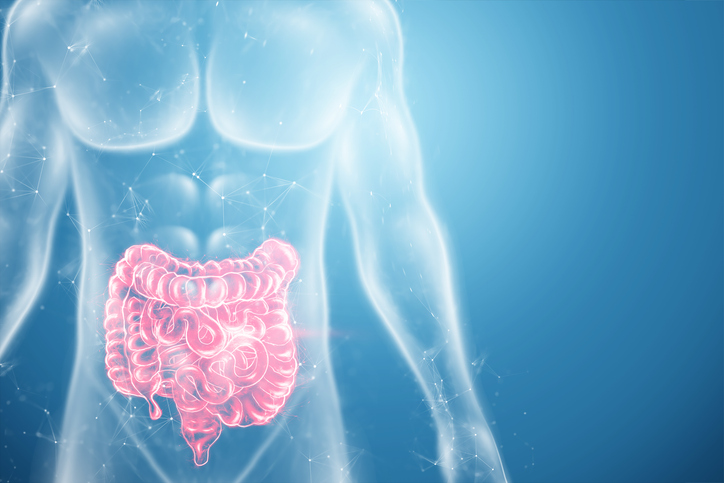2024-07-10
Effects of faecal microbiota transplantation on gut phage communities in a clinical trial to treat adolescent obesity
Gastroenterology and Hepatology
FMT (Fecal Microbiota Transplantation) is a therapeutic intervention used to treat diseases associated with the gut microbiome, and phages play a crucial role in modulating the bacterial communities of the microbiota.
Intestinal phages influence human health by modulating the bacterial communities of the microbiota. Successful engraftment of donor phages correlates with the efficacy of FMT treatment. However, the effect of FMT on recipient phage populations and, consequently, on the gut environment is not yet well understood.
This study investigated the effects of FMT on the phagome composition of participants in the Gut Bugs Trial (GBT), a double-blind, randomised, placebo-controlled clinical trial evaluating the efficacy of FMT in the treatment of obesity and co-morbidities in adolescents.
Stool samples were taken from donors at the time of treatment and from recipients at four different times (at the start of the study, and at 6 weeks, 12 weeks, and 26 weeks post-intervention). These samples underwent shotgun metagenomic sequencing. Phage sequences were identified and characterised in silico to examine evidence of phage engraftment and to assess the extent of FMT-induced changes in recipient phagome composition. Donor phages engrafted stably in recipients after FMT, constituting a significant proportion of their phagome throughout the study (33.8% ± 1.2% in females and 33.9% ± 3.7% in males). Phage engraftment varied between donors and its efficacy was positively correlated with the alpha diversity of the donor phagome. FMT induced a shift in recipient phagome towards donor composition and increased phagome alpha diversity and variability over time..
FMT significantly modified the phage populations and, more generally, the microbial populations of the recipients. The increase in microbial diversity and variability is consistent with a change in microbial population dynamics. These results suggest that phages play a critical role in modulating the gut environment and open up new avenues for understanding the effectiveness of FMT in modifying the recipient microbiome. The results of this study are important for the development of new therapeutic approaches based on the modulation of the intestinal microbiome by phages. They also highlight the need to further explore the role of phages in the success of FMT treatments and other microbiome-related interventions.
Intestinal phages influence human health by modulating the bacterial communities of the microbiota. Successful engraftment of donor phages correlates with the efficacy of FMT treatment. However, the effect of FMT on recipient phage populations and, consequently, on the gut environment is not yet well understood.
This study investigated the effects of FMT on the phagome composition of participants in the Gut Bugs Trial (GBT), a double-blind, randomised, placebo-controlled clinical trial evaluating the efficacy of FMT in the treatment of obesity and co-morbidities in adolescents.
Stool samples were taken from donors at the time of treatment and from recipients at four different times (at the start of the study, and at 6 weeks, 12 weeks, and 26 weeks post-intervention). These samples underwent shotgun metagenomic sequencing. Phage sequences were identified and characterised in silico to examine evidence of phage engraftment and to assess the extent of FMT-induced changes in recipient phagome composition. Donor phages engrafted stably in recipients after FMT, constituting a significant proportion of their phagome throughout the study (33.8% ± 1.2% in females and 33.9% ± 3.7% in males). Phage engraftment varied between donors and its efficacy was positively correlated with the alpha diversity of the donor phagome. FMT induced a shift in recipient phagome towards donor composition and increased phagome alpha diversity and variability over time..
FMT significantly modified the phage populations and, more generally, the microbial populations of the recipients. The increase in microbial diversity and variability is consistent with a change in microbial population dynamics. These results suggest that phages play a critical role in modulating the gut environment and open up new avenues for understanding the effectiveness of FMT in modifying the recipient microbiome. The results of this study are important for the development of new therapeutic approaches based on the modulation of the intestinal microbiome by phages. They also highlight the need to further explore the role of phages in the success of FMT treatments and other microbiome-related interventions.

Last press reviews
Youth and Supplements: Miracle or Trend?

#DietarySupplements #ChildNutrition #TeenHealth #Probioti...
Pre-Baby Boost: The Supplements That Make a Difference

#PreconceptionNutrition #MaternalHealth #MaternalAnemia ...
Microalgae: An Ally Against Malnutrition

#Malnutrition #Microalgae #Spirulina #Superfood ...